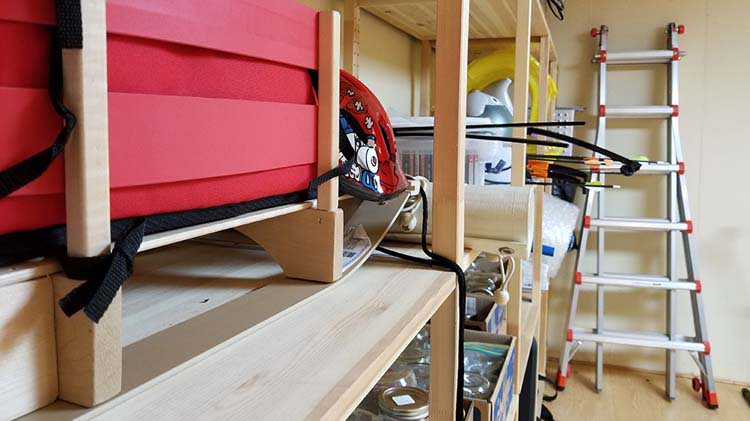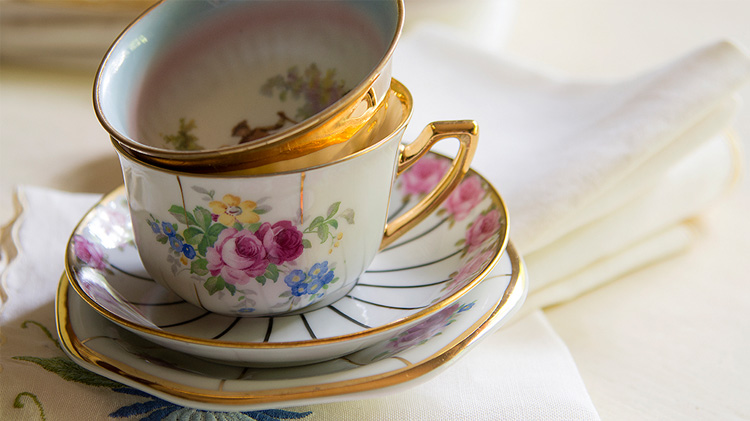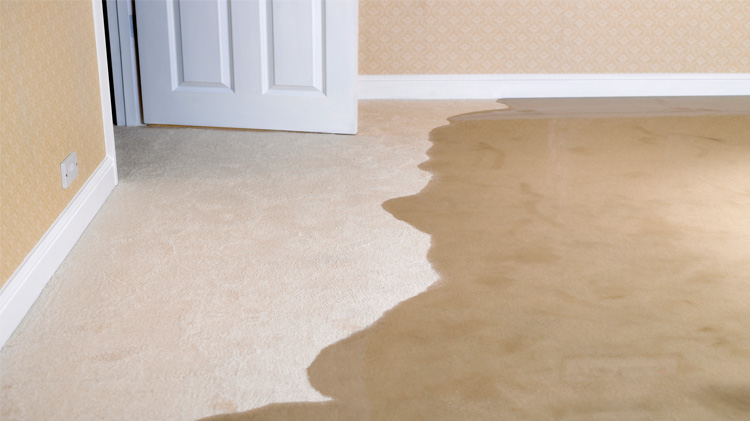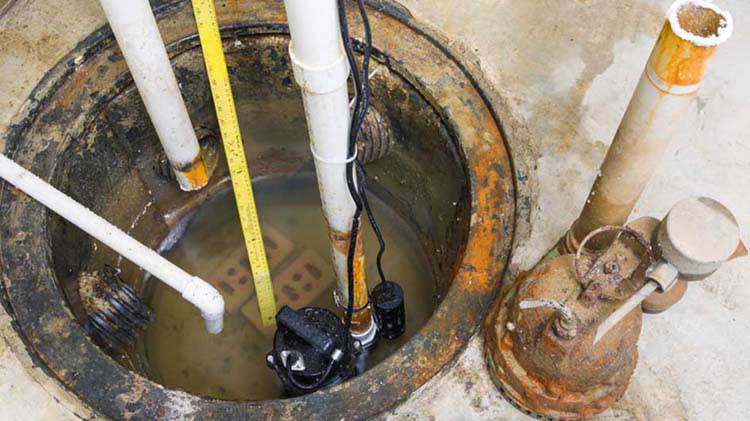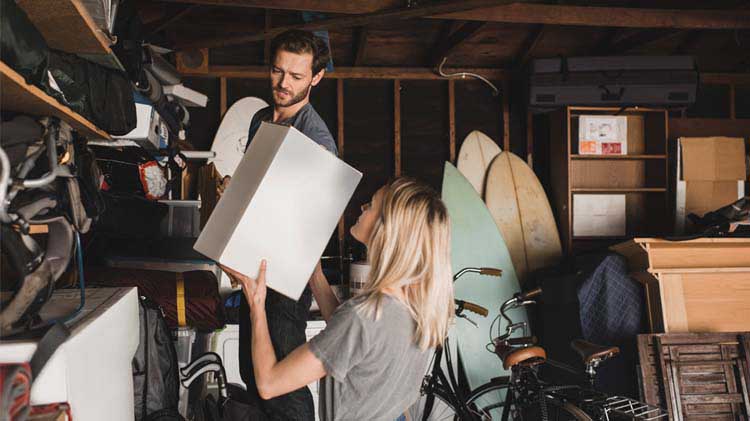Basement storage ideas
Finished and unfinished basement storage can be tricky. Below are some tips to help you keep the right things in your home's lower level.
There can be many joys of having a below-ground level to your home. It might offer you a bonus space to transform into a family room or guest bedroom, or even just provide the right amount of square footage to use for both short- and long-term storage. But basements and storage might not always be compatible.
Some basements — prone to flooding, moisture-related mold, even an insect or two — may not be the best place to store all your excess and seasonal belongings. Whether you have a finished or unfinished basement, these tips can help you organize your necessities. Consider these ideas to help figure out how to safely organize and store items, and what not to store in a basement.
How can you help keep an organized and clean basement?
Basement organization can be complex, especially if storing extra items you may not always access.
- Take an inventory — knowing what is in the basement can be beneficial when sorting through your items and when determining where the items will go.
- Clear out the clutter — remove any unnecessary or unused items, as the less items being stored the better. This can help make other crucial items more accessible. Try sorting the items in your basement into multiple piles for trash, donating, selling and storing.
- Utilize a donation bin — keep a small donation bin in the basement to collect items such as old toys, clothes and blankets that are ready to repurpose. When the bin is full, take it to a donation drop-off point.
- Help control odor and humidity — basements can easily acquire a musty smell. Cleaning the basement and using a dehumidifier can help limit smells and prevent moisture and condensation from building in unwanted spaces and items.
What should you consider not storing in your basement?
- Electronics — if you've not finished any of the space, bulky and pricey electric items such as power drills or kitchen stand mixers are better off on ground level or above. If your basement is finished, check that any TVs or other electronics are in a moisture-free space and off the ground.
- Artwork — humidity and poor ventilation can damage delicate paintings, photographs and other items.
- Flammables — materials such as paint and other home supplies can pose a fire risk, particularly if adjacent to gas-powered appliances. Follow manufacturer recommendations for storage.
- Books and documents — poor ventilation and humidity can wreak havoc on anything with a paper component. Consider storing books above ground and in sturdy, leak-proof containers. Store documents such as birth certificates and Social Security cards higher than the basement in a locked fire box or home safe.
Unfinished basement storage ideas
If your basement is unfinished, consider installing basement storage shelves so you can keep your items off the basement floor.
- Furniture — to help prevent moisture damage, try to keep your furniture from touching the floor if possible. Plastic sheeting or furniture risers can come in handy for larger pieces. Place any foldable items stacked neatly against a wall so they're accessible.
- Bulk household and kitchen supplies — larger quantities of necessities, including toilet paper, paper towels, disposable dishes and any other household items should be stored on shelves off the ground. That way, even if your basement floor does get damp, it won't damage these items.
- Non-perishable food — as with bulk household supplies, stash the extras on shelves off the basement floor.
- Outdoor accessories — the basement can be a good spot for yard accessories or other gardening supplies. However, heavier outdoor furniture can remain outside under all-weather covers.
How to store things in a damp basement
If your basement gets damp, consider investing in mold-proof storage containers to store anything that might attract moisture. Using storage totes, wire shelving or even wall mounted cabinets can help keep your items dry while stored away.
- Clothing — keep extra or seasonal clothing in sealed containers off the basement floor, if possible.
- Furniture — clean and store any fabric or foam pieces, such as cushions, off the basement floor. Consider draping breathable cloths or blankets over furniture and storing them more than 3 inches from the wall to help limit potential moisture damage.
Keeping your necessities clean and accessible while staying organized and dry can help keep your basement storage manageable.
After cleaning up and reorganizing your basement, take time to review what's in your garage storage and under your sink.
